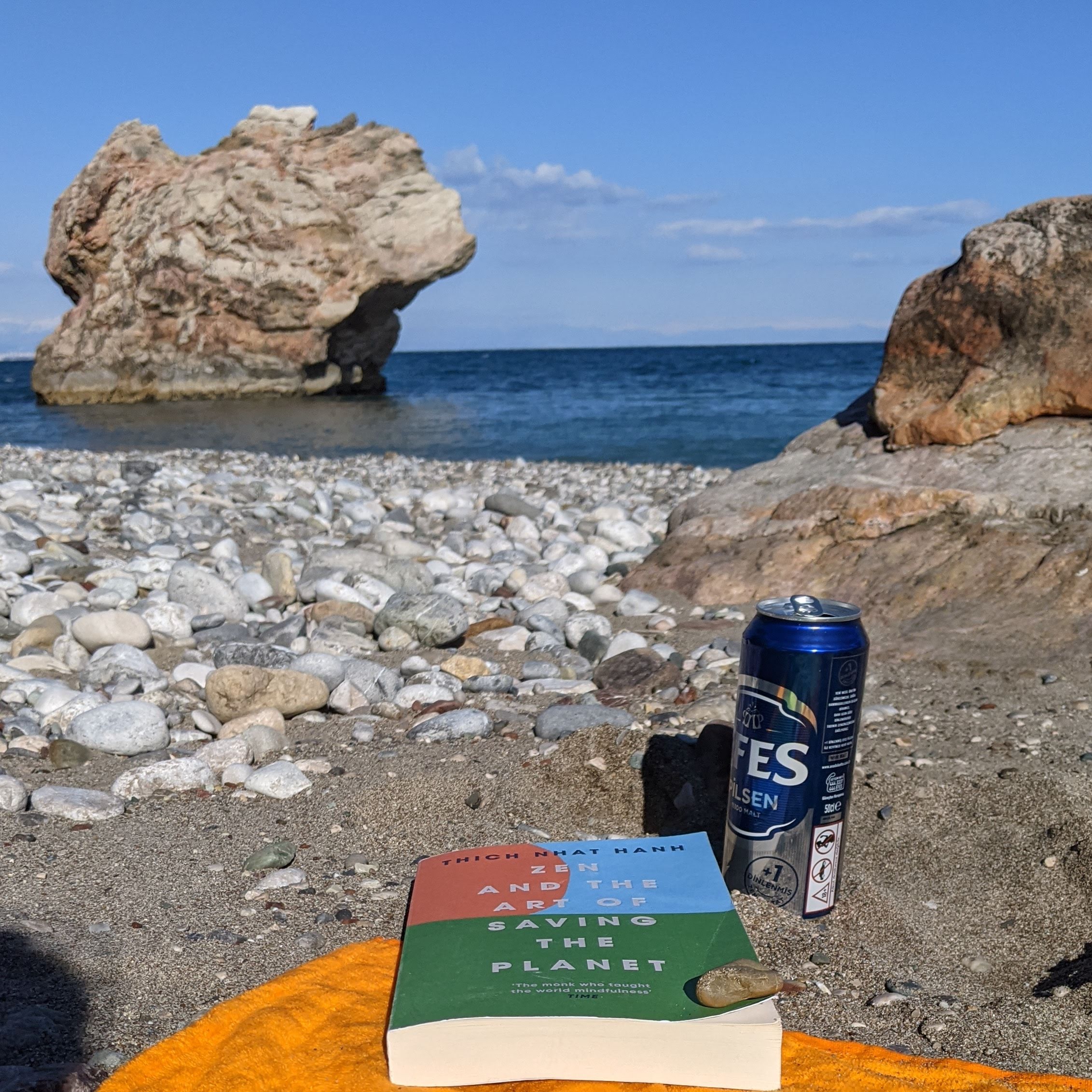Zen and the Art of Saving the Planet
Last Blog | Index | Next Blog
Fifty | Ninety | Twenty-Five
5 April 2022
My first real encounter with zen philosophy began on a plane to Honduras in 1998 when I started reading Douglas Hofstadter's classic Gödel Escher Bach, and it is a subject I've come back to every few years because the tradition has been well developed by practicants over the centuries and has profound wisdom in addition the baggage of bullshit religions also pick up. Thich Nhat Hanh was a Vietnamese Buddhist who spent a long exile in France before finally returning to Vietnam near the end of his life. Often I pick up a book because of a favorable review from a friend or a publication I read, but I'm not sure exactly how I found Zen and the Art of Saving the Planet. I have only the hypothesis that it popped up somewhere because of Hanh's recent demise. If you do not enjoying picking the the pearls out of the bullshit this book is not for you.
The book is a collection of writings of "Thay", as the author is referred to as in the book, alongside commentaries written by "Sister True Dedication". As we learn in the book that she was formerly a BBC journalist while the nominal author had a stroke in 2014, one can't help be wonder how much of "his" sections she also wrote or if they carry a similar voice just from her heavy editing. The reverence for Thay in the fashion of an eastern personality cult is one of the aspects making the book somewhat nauseating to endure. But there are pearls there to find beneath this!
So what are the pearls? To name a few: The expanded idea of self in successive layers to include family, then community, and then the entire Earth. The expanded idea of self temporally to include ancestor and descendants both of body and of ideas. The path of nonviolence. The fallibility of human and its invitation to compassion, both for oneself and others. The importance of taking care of one's body as well as one's mind. Deep listening. The power of letting go, not only of things but also ideas and habits. And the list goes on and on.
The author's personal anecdotes, especially about his experiences during the Vietnam War, are insightful throughout the book moreso than the religious tales of boddhisattvas. Reading it overall was an experience oscillating between cringing at nonsense and feeling the enlightenment that accompanies profound ideas. I suppose that reading this book was an excerise in deep listening, but it's not one I would recommend to everyone. There are better books expalaining zen philosophy.

